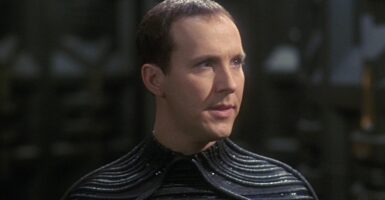The Coen Brothers’ Gangster Drama Is Really A Love Story
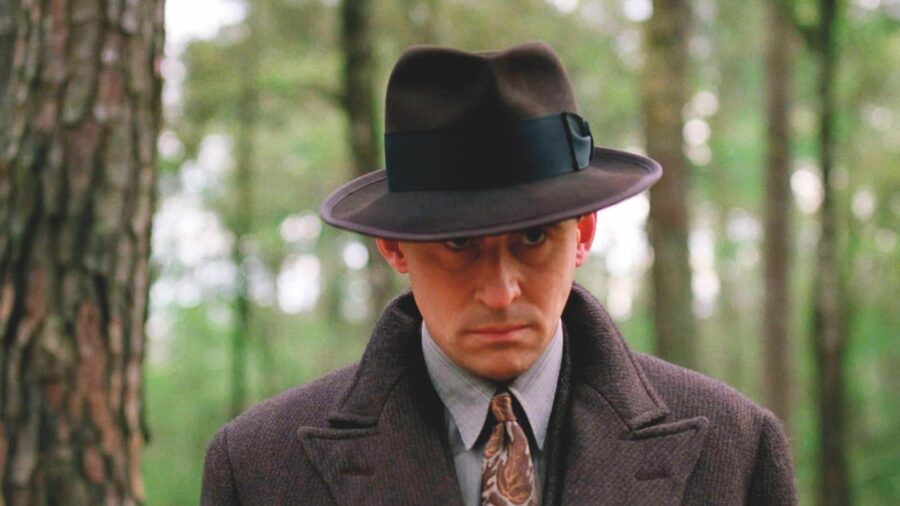
Of all of the Coen brothers’ body of work, I have always been most fascinated by one of the earliest features they co-directed and co-wrote, 1990’s Miller’s Crossing. Feeling as brutal as any of Dashiell Hammett or Raymond Chandler‘s noir novels, sprinkled with the long con brilliance of The Sting, the Coens’ third film follows the desperate efforts of Tom Reagan (Gabriel Byrne) to survive an explosive mob war, get his boss Leo (Albert Finney) back on top, and–as a bonus–to pay off his gambling debts. After rewatching the films more times than I can reasonably remember, I have become convinced the film is really a story of unrequited love between Tom Reagan and mob boss Leo.
The Plot Of Miller’s Crossing
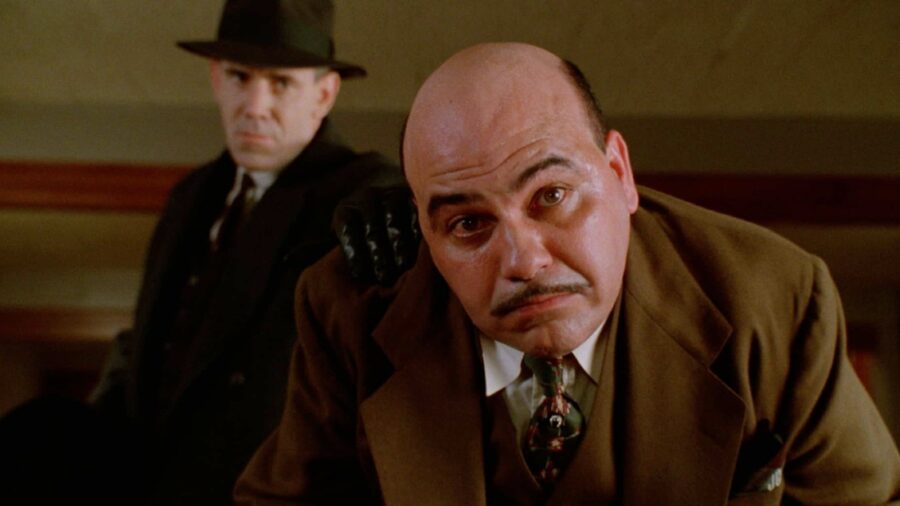
The most challenging aspects of Miller’s Crossing are its complex plot which is rendered that much more difficult to unravel because of the dense, aged lingo.
We argue that Ethan and Joel Coen’s 1990 mobster film Miller’s Crossing is a story of unrequited love between Gabriel Byrne’s protagonist and the mob boss played by Albert Finney.
The most common greeting you hear is “what’s the rumpus,” it may be the only time you repeatedly hear a woman referred to as a “twist,” and the derogatory terms–mostly targeted at Jewish and/or gay characters–is so archaic half the time you won’t know whether or not you should be offended.
Once you can penetrate the lingo, you see the opening scene of Miller’s Crossing has most of what you need to know. Leo leads the Irish mob of an unnamed American city, and he’s fought his way to the top of the organized crime food chain. The movie opens with Leo and his chief adviser Tom taking a meeting with Johnny Caspar (Jon Polito), the head of the Italian mob, and his righthand man Eddie Dane (J.E. Freeman).
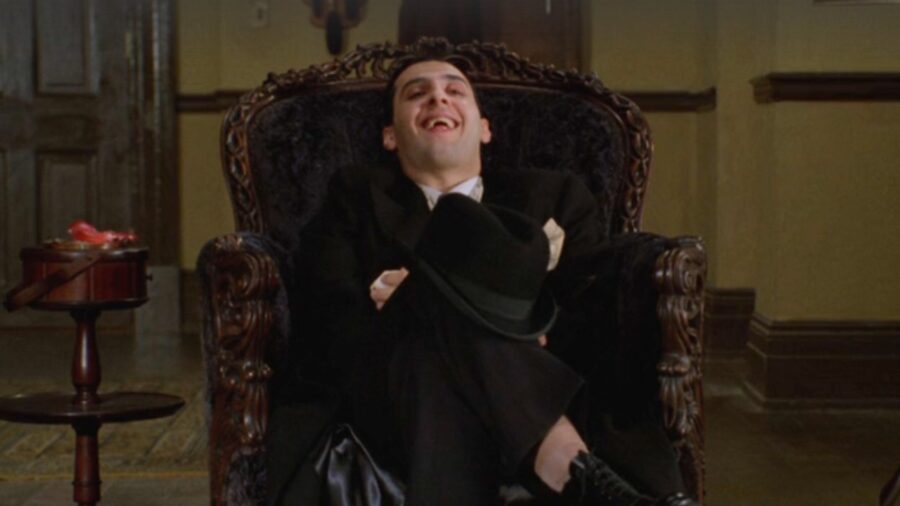
Johnny Caspar wants to murder the bookie Bernie (John Turturo). Caspar has been fixing boxing matches and he’s convinced Bernie is selling the info of what fights he fixes. Tom is convinced Leo should let Caspar do what he wants, but the bookie’s sister Verna (Marcia Gay Harden) is Leo’s main squeeze, so the Irish mobster tells his Italian counterpart to take his “flunky and dangle” (that means “leave”).
As a result Bernie becomes the most wanted man in Miller’s Crossing, and Tom sets out on an ultimately heroic, but duplicitous, quest to save Leo from his own bad decision.
After Tom is kicked out of Leo’s mob for admitting to his affair with Verna, he gets on Johnny Caspar’s payroll as a double agent (and the only person in the world who knows that’s what he is). Completing his quest means navigating the romantic manipulations of Verna, the investigations of the untrusting and merciless Eddie Dane, Tom’s increasingly impatient bookie Lazarre, and of course the devilish Bernie himself.
Tom Does Everything For Leo
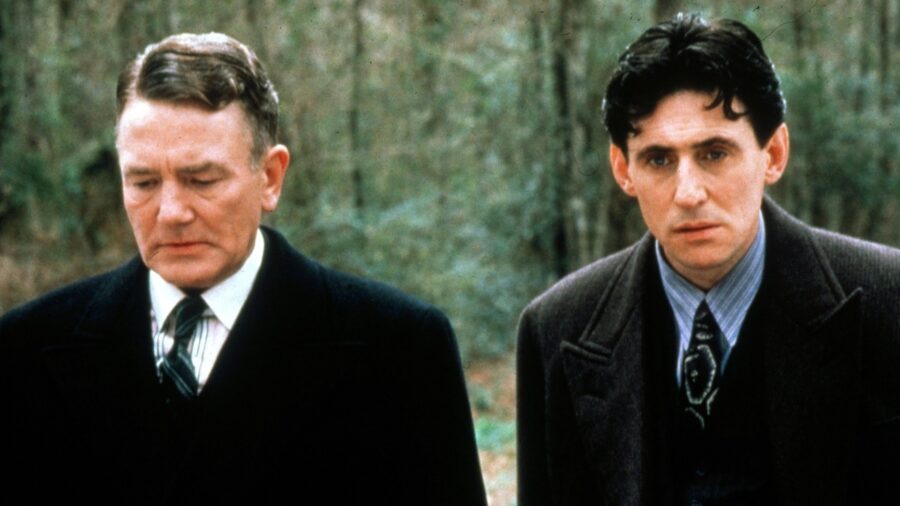
The question of why Tom goes through his hellish path is at the heart of Miller’s Crossing, and the only answer that makes sense is that he does it all for Leo. He certainly doesn’t do it for Verna. He loses her to Leo at the end of the film–something he would have to know would happen after Bernie’s death.
No, the quest Tom embarks on in Miller’s Crossing is all for Leo, and the fact that–in spite of it all–he refuses to rejoin Leo’s mob after everything is said and done is proof that he does it for something more than just friendship.
He refuses to go back to his old job both because he can’t stand to see Leo with someone else, and because even if Verna were out of the picture, pursuing Leo wouldn’t be realistic because of the world they inhabit.
Queerness In Miller’s Crossing
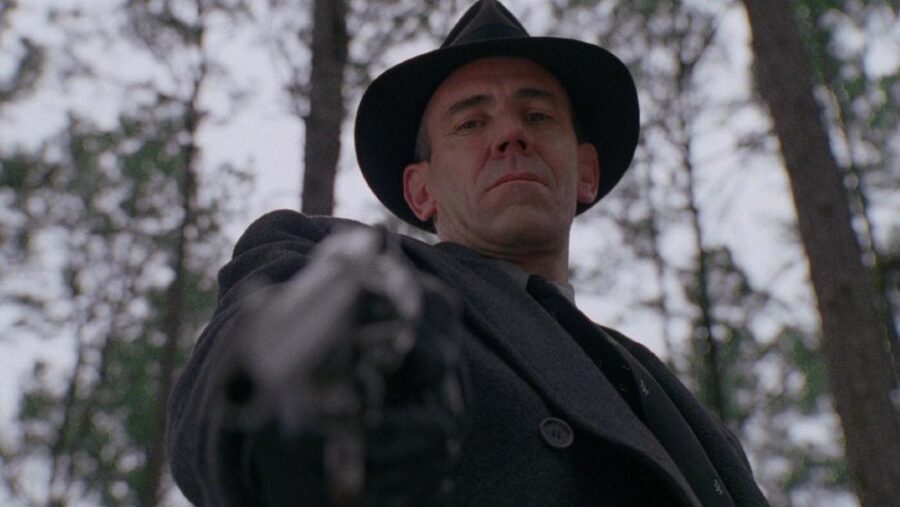
Even without counting Tom and/or Leo, there are a surprising number of LGBTQ characters in Miller’s Crossing. There’s the bookie Bernie whose treachery sets everything in motion, there’s Mink (Steve Buscemi) with whom he’s having an affair and from whom he gets information about Caspar’s fixed fights, and then there’s Eddie Dane who doesn’t know Mink is stepping out on him. Finally there’s Drop Johnson (Mario Todisco), who Bernie shacks up with once he murders Mink.
In spite of the sheer number of LGBTQ characters appearing in Miller’s Crossing, and how important they are to the story–particularly Eddie and Bernie–queerness is treated as a barely tolerated open secret.
No one in Miller’s Crossing ever says, for example, “Eddie Dane is gay.” Even when there is seemingly no practical reason to do so, the characters speak only in impromptu code.
When he’s trying to convince Caspar that Eddie Dane and Mink have betrayed him, Tom says, “Of course there’s always that wild card when love is involved.” Caspar answers, looking weak as he says it, “I know Mink is Eddie Dane’s boy.” Both are lines that could be interpreted different ways, but their meanings are clear.
Symbolism In Miller’s Crossing

Tom is haunted by a recurring dream in which he loses his hat. He tells Verna about the dream and she suggests that at some point he catches up with it and it’s turned “into something beautiful.” He angrily denies this last part, and he denies it in a way that suggests she was absolutely right.
Tom’s hat, I’d argue, represents the facade that he wants to discard in order to find, as Verna says, “something beautiful”–a romantic life with Leo–in its place.
The hat is what Tom uses to hide his face in the final frame of Miller’s Crossing, when he loses Leo forever. It’s what Eddie Dane–who sees Tom’s machinations more clearly than anyone in Caspar’s camp–takes from him and throws away moments before he’s about to execute Tom (with Tom kneeling in front of him, just as Bernie kneels twice in front of Tom). It’s what Tom keeps losing and keeps getting forced back into his hands as Leo beats the hell out of him in his club.
And it’s what almost every single male character is constantly wearing throughout Miller’s Crossing.
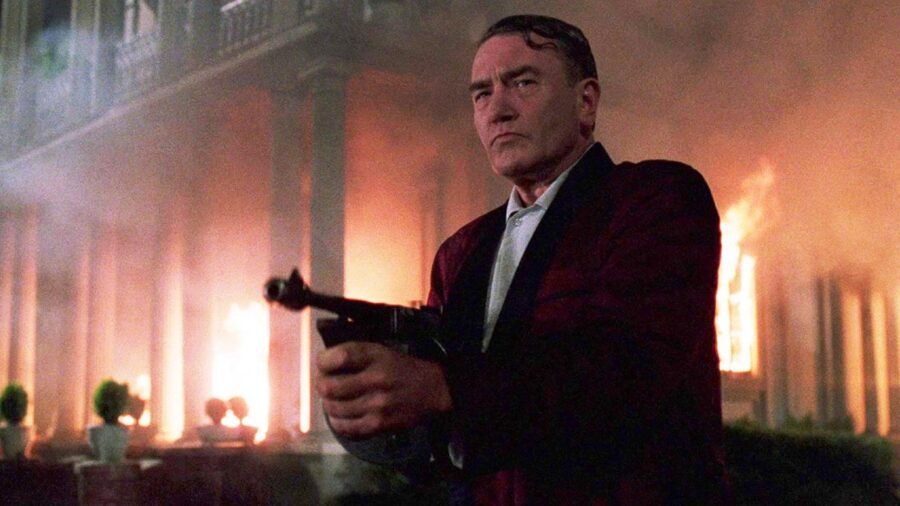
I also don’t think it’s a mistake that it’s “Danny Boy” that’s playing in Albert Finney’s famous gunfight scene. People have had different interpretations of the song over the years, but regardless of what meaning you take from the ballad, it ends with one man professing love for another.
Interpretation is, of course, subjective (and thank Hulk for that), so see in Miller’s Crossing whatever you choose. But to me the film will always be the story of a man who goes through hell for the man he loves, even though he knows they can never be together.


